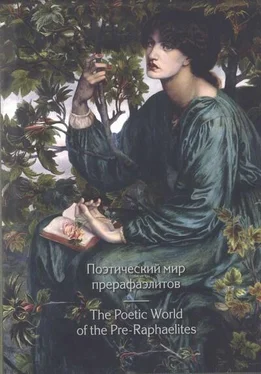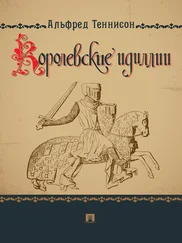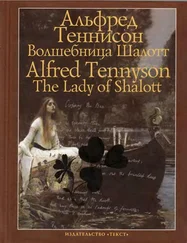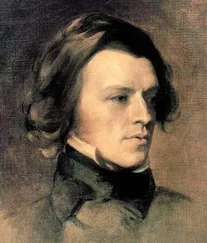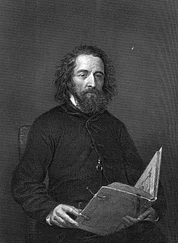Перевод В. Сергеевой
(To Frederick Shields, on his Sketch of Blake’s Work-Room and Death-Room, 3 Fountain Court, Strand)
This is the place. Even here the dauntless soul,
The unflinching hand, wrought on; till in that nook,
As on that very bed, his life partook
New birth, and passed. Yon river’s dusky shoal,
Whereto the close-built coiling lanes unroll,
Faced his work-window, whence his eyes would stare,
Thought-wandering, unto nought that met them there,
But to the unfettered irreversible goal.
This cupboard, Holy of Holies, held the cloud
Of his soul writ and limned; this other one,
His true wife’s charge, full oft to their abode
Yielded for daily bread the martyr’s stone,
Ere yet their food might be that Bread alone,
The words now home-speech of the mouth of God.
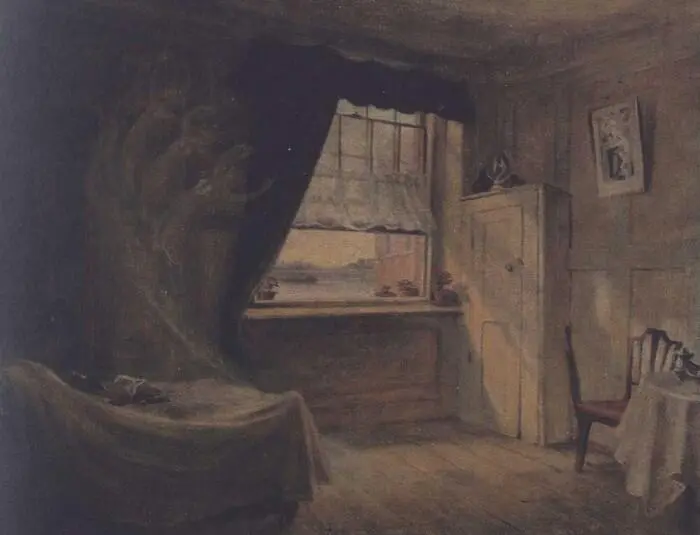
Frederic James Shields WILLIAM BLAKE’S ROOM Oil on canvas. 1882 Manchester City Galleries
Фредерик Джеймс Шилдз КОМНАТА УИЛЬЯМА БЛЕЙКА Холст, масло. 1882 Манчестерская художественная галерея
(Посвящается Фредерику Шилдзу, нарисовавшему комнату, где Блейк работал и умер: Стрэнд, Фаунтен-корт, 3)
Вот комната, где смертною рукой
Бессмертный дух водил за годом год
И где, избавясь от земных забот,
Был призван небом. Сумрак над рекой
И тесный переулок городской
Там, за окном, маячили; но он
К великой цели вечно устремлен,
Трудился, не смущаясь суетой.
Сей шкаф — святыня. Сберегались в нем
Плоды трудов; для подкрепленья сил
Являлся из другого день за днем
Насущный хлеб (порой он черствым был),
Но Хлеб иной супругам ныне мил —
Внимают Богу, внидя в вечный дом.
Перевод В. Сергеевой
PROSERPINA
(FOR A PICTURE)
Afar away the light that brings cold cheer
Unto this wall, — one instant and no more
Admitted at my distant palace-door.
Afar the flowers of Enna from this drear
Dire fruit, which, tasted once, must thrall me here.
Afar those skies from this Tartarean grey
That chills me: and afar, how far away,
The nights that shall be from the days that were.
Afar from mine own self I seem, and wing
Strange ways in thought, and listen for a sign:
And still some heart unto some soul doth pine,
(Whose sounds mine inner sense is fain to bring,
Continually together murmuring,) —
‘Woe’s me for thee, unhappy Proserpine!’
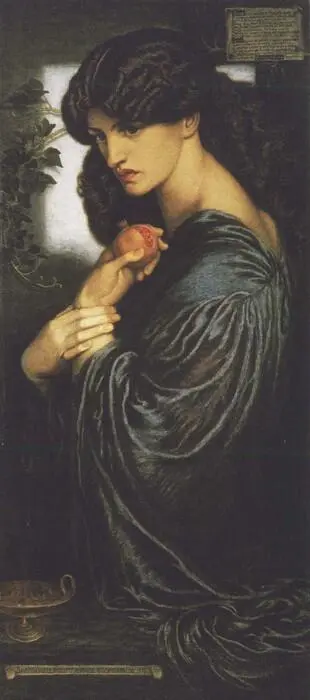
Dante Gabriel Rossetti PROSERPINE Oil on canvas. 1874 Tate, London
Данте Габриэль Россетти ПРОЗЕРПИНА Холст, масло. 1874 Галерея Тейт, Лондон
О светлый день, на краткий миг пролей
Свой бледный луч в забытый уголок
Моей темницы, в горестный чертог!
Цветущей Энны и родных полей
Не стоит плод, что у моих очей
Похитил свет небес. Полны тоски
Луга Аида. О, как далеки
Былые дни от будущих ночей!
Как далека я от себя самой —
Витаю в мыслях где-то, знака жду
И сердцем слышу, как, томясь в бреду,
Душа другая шепчет, скрыта тьмой:
«Как тяжек, Прозерпина, твой покой!
О, горе! Не избыть твою беду».
Перевод А. Круглова
What of the end, Pandora? Was it thine,
The deed that set these fiery pinions free?
Ah! wherefore did the Olympian consistory
In its own likeness make thee half divine?
Was it that Juno’s brow might stand a sign
For ever? and the mien of Pallas be
A deadly thing? and that all men might see
In Venus’ eyes the gaze of Proserpine?
What of the end? These beat their wings at will,
The ill-born things, the good things turned to ill, —
Powers of the impassioned hours prohibited.
Aye, clench the casket now! Whither they go
Thou mayst not dare to think: nor canst thou know
If Hope still pent there be alive or dead.
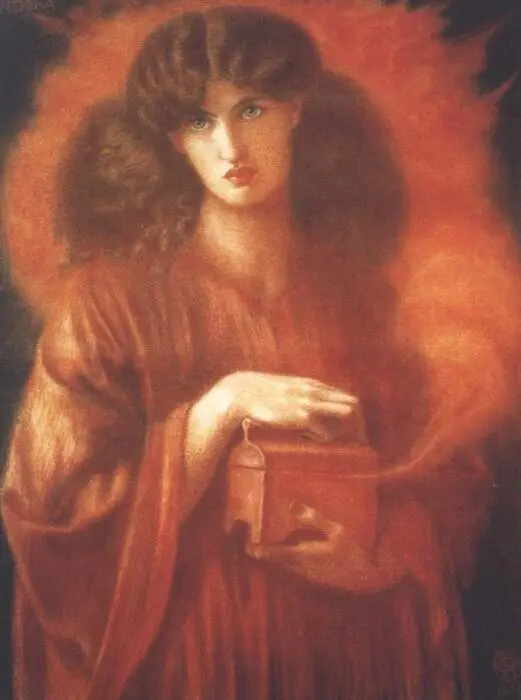
Dante Gabriel Rossetti PANDORA Chalk on paper. 1869 Faringdon Collection Trust Buscot Park, Oxfordshire
Данте Габриэль Россетти ПАНДОРА Бумага, мел. 1869 Собрание Фарингдона Баскот-Парк, Оксфордшир
Зачем, Пандора? И рука твоя ли
Дала свободу огненным крылам?
Божественною с глиной пополам
Зачем тебя с Олимпа ниспослали?
Чтоб гнев Юноны мы не забывали?
Чтоб гибелью всегда грозило нам
Копье Паллады? И Венерин храм
Стенанья Прозерпины оглашали?
Зачем, скажи? Повсюду проросло
И крепнет зло, и от добра лишь зло,
Любовь греховна и полна печали.
Куда летит беда — кто даст ответ?
Не пуст твой ящик, но жива иль нет
Внутри Надежда, знаешь ты едва ли.
Перевод А. Круглова
Give honour unto Luke Evangelist;
For he it was (the aged legends say)
Who first taught Art to fold her hands and pray.
Scarcely at once she dared to rend the mist
Of devious symbols: but soon having wist
How sky-breadth and field-silence and this day
Are symbols also in some deeper way,
She looked through these to God and was God’s priest.
And if, past noon, her toil began to irk,
And she sought talismans, and turned in vain
To soulless self-reflections of man’s skill, —
Yet now, in this the twilight, she might still
Kneel in the latter grass to pray again,
Ere the night cometh and she may not work.
Читать дальше
